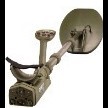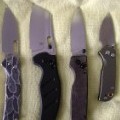How To Better Use The Sensitivity Setting On A GPZ 7000
-
Similar Content
-
- 2 replies
- 286 views
-
- 41 replies
- 3,496 views
-
- 44 replies
- 4,689 views
-
- 5 replies
- 673 views
-
Avantree Interested In Hearing From You 1 2 3 4 8
By Wiggins,
- minelab gpz 7000
- headphones and audio
- (and 1 more)
- 78 replies
- 10,556 views
-
- 19 replies
- 3,279 views
-
-






.thumb.jpg.ac5e8ee36e43bcab745dbc623fcf1874.jpg)




.thumb.jpg.8761b3d9b3da119b9e6d1912f67275ad.jpg)
Recommended Posts
Create an account or sign in to comment
You need to be a member in order to leave a comment
Create an account
Sign up for a new account in our community. It's easy!
Register a new accountSign in
Already have an account? Sign in here.
Sign In Now